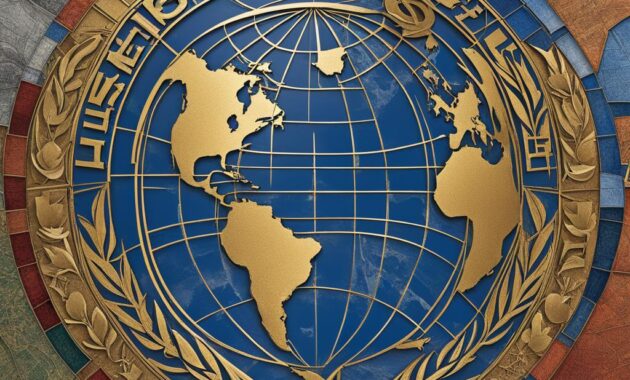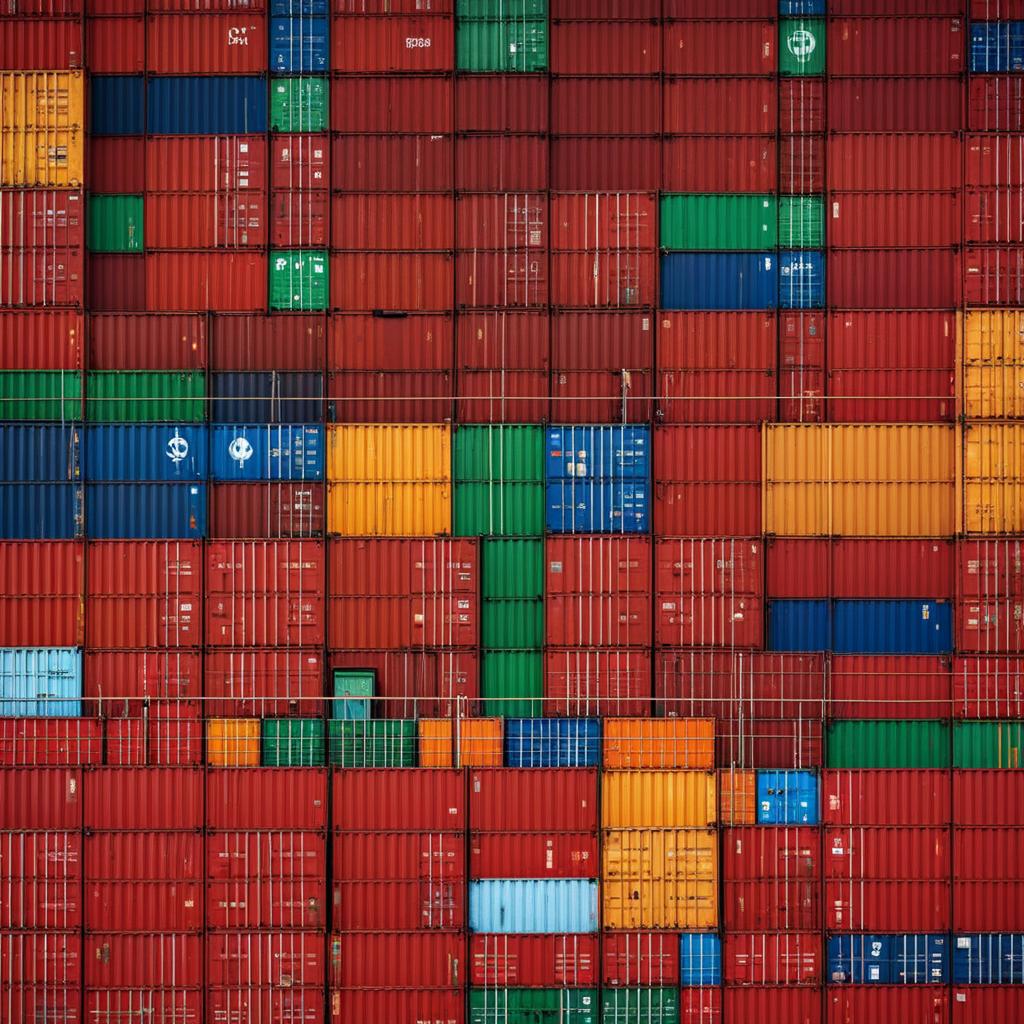Welcome to our article on the influential role played by the International Monetary Fund (IMF) in shaping global economic development. As a global organization with 190 member countries, the IMF plays a crucial role in maintaining global financial stability and fostering economic progress worldwide.
Through its policies and programs, the IMF helps its member countries by providing technical assistance and financial support to promote sustainable economic growth and reduce poverty. Its work is especially important in times of economic crisis, as it has the expertise and resources to help countries overcome financial challenges.
In this section, we will focus on the IMF’s role in promoting global financial stability and fostering economic progress. We will explore the measures implemented by the IMF to prevent and mitigate financial crises, enhance the resilience of financial systems, and ensure the stability of exchange rates and international payments.
So, join us as we dive into the crucial role played by the International Monetary Fund in shaping the global economic landscape and promoting economic progress worldwide.
The Role of the International Monetary Fund (IMF)
As we discussed in the previous section, the International Monetary Fund (IMF) is a crucial player in the global economic landscape. Founded in 1944, the IMF has 190 member countries and operates with the mission of promoting international monetary cooperation, facilitating international trade, and fostering economic growth and sustainability worldwide.
The primary functions of the IMF include:
- Surveillance and monitoring: The IMF regularly monitors economic developments and policies of its member countries to identify emerging risks and challenges and provide policy recommendations.
- Financial assistance: The IMF provides financial assistance to member countries facing balance-of-payment difficulties or other economic crises.
- Technical assistance and capacity building: The IMF provides technical assistance and training to member countries to help them strengthen their economic institutions and policies.
Through these functions, the IMF plays a critical role in maintaining global economic stability and progress.
The IMF and International Monetary Cooperation
The IMF serves as a forum for international monetary cooperation, bringing together central bankers, finance ministers, and other policymakers from around the world to discuss economic policy issues and collaborate on strategies for promoting economic growth and stability.
One of the key ways in which the IMF promotes international monetary cooperation is through the provision of financial assistance to member countries experiencing economic difficulties. The IMF provides loans to member countries in need, with conditions attached to ensure that the borrowing country implements policies that will help restore its economic stability and growth.
The IMF and Facilitating International Trade
Another critical function of the IMF is to facilitate international trade by promoting exchange rate stability and providing financial assistance to countries experiencing balance-of-payment difficulties.
The IMF also works to promote increased trade liberalization, advocating for the reduction of trade barriers and the elimination of discriminatory trade policies. By fostering an open and stable global trading environment, the IMF helps facilitate economic growth and development worldwide.
The IMF and Financial Assistance
When a member country experiences balance-of-payment difficulties or other economic crises, the IMF can provide financial assistance in the form of loans. This assistance is designed to help the country restore its economic stability and growth.
The IMF’s lending programs typically include conditions attached to ensure that the borrowing country implements policies that will help address the underlying economic issues. These conditions may include measures to reduce government spending, liberalize trade, and strengthen the financial sector.
Promoting Global Financial Stability
In this section, we will highlight the measures taken by the International Monetary Fund (IMF) to promote global financial stability. The IMF plays a crucial role in maintaining financial stability worldwide. It helps prevent crises, provides financial assistance to countries in need, and facilitates international monetary cooperation.
Preventing and Mitigating Financial Crises
The IMF’s primary objective is to prevent financial crises from occurring and to mitigate their impact when they do. To achieve this goal, the IMF closely monitors global economic developments and financial markets, identifying potential risks and vulnerabilities.
Additionally, the IMF provides policy advice and technical assistance to member countries, helping them implement sound economic policies and strengthen their financial systems. The IMF also collaborates with other international organizations and central banks to coordinate policy responses and provide a coordinated global approach to crisis management.
Enhancing the Resilience of Financial Systems
The IMF helps countries improve the resilience of their financial systems by promoting financial sector reforms, enhancing risk management practices, and strengthening financial regulation and supervision. The IMF also provides guidance on macroprudential policies, which aim to prevent systemic risks from building up in the financial system.
Moreover, the IMF conducts regular assessments of countries’ financial sectors, identifying areas for improvement and providing recommendations to address vulnerabilities. These assessments also help enhance transparency and promote good governance in the financial sector.
Ensuring the Stability of Exchange Rates and International Payments
The IMF plays a critical role in ensuring the stability of exchange rates and international payments. It provides guidance on exchange rate policies and intervenes in foreign exchange markets when necessary to prevent excessive exchange rate volatility.
The IMF also promotes the use of sound macroeconomic policies and coordinated international action to prevent the emergence of imbalances in international payments. This involves monitoring countries’ external positions and providing policy advice to address imbalances that could threaten the stability of the global financial system.

“The IMF’s efforts to promote global financial stability are critical for maintaining economic growth and preventing financial crises. Its work helps ensure the resilience of the global financial system and supports sustainable economic development worldwide.”
Conclusion
In conclusion, the International Monetary Fund (IMF) plays a crucial role in shaping global economic development. As we have explored in this article, the IMF’s efforts towards maintaining global financial stability and fostering economic progress worldwide cannot be overstated.
From its functions and responsibilities to its contributions towards promoting international monetary cooperation, facilitating trade, and providing financial assistance to member countries, the IMF has established itself as a leader and a critical voice in the global landscape.
Through its measures to prevent and mitigate financial crises, enhance the resilience of financial systems, and ensure the stability of exchange rates and international payments, the IMF has demonstrated its commitment to promoting global financial stability.
In conclusion, the role of the International Monetary Fund (IMF) cannot be underestimated in our quest towards achieving a more prosperous and equitable world.




